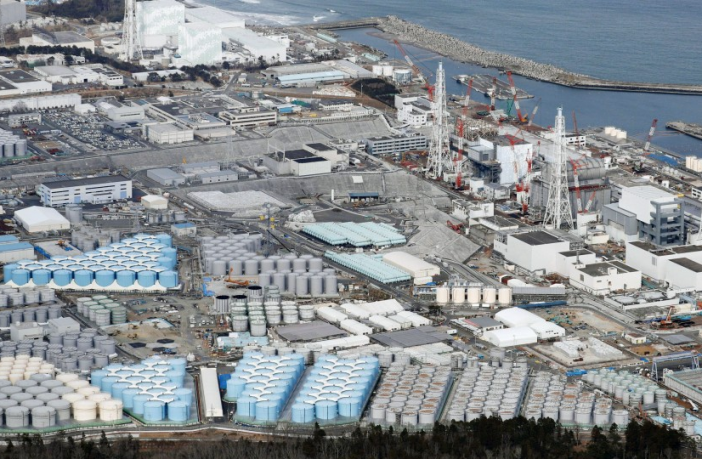- Japan has started to release wastewater from the damaged Fukushima nuclear plant into the ocean last week which has caused outrage from China who immediately announced that they will stop importing seafood from Japan.
- In 2011, three reactors in the plant flooded after a tsunami was triggered by a magnitude 9.0 earthquake.
- The facility is now running out of space to store water used to cool the nuclear reactors.
- China imports more than $1.4 billion worth of Japanese seafood each year.
Japan’s plan will see 500,000 litres of ‘treated’ wastewater discharged into the Pacific Ocean daily over the next 30 years which has been given the all clear by the International Atomic Energy Agency (IAEA), who claim that it is consistent with IAEA Safety Standards. Kicking off the release, about 5 trillion becquerels – a measure of radioactivity – of tritium will be released this fiscal year said Tokyo Electric Power Company (TEPCO) in a statement.
“Based on its comprehensive assessment, the IAEA has concluded that the approach and activities to the discharge of ALPS treated water taken by Japan are consistent with relevant international safety standards,” IAEA Director General Rafael Mariano Grossi said in a foreword of the report.
“Furthermore, the IAEA notes the controlled, gradual discharges of the treated water to the sea, as currently planned and assessed by TEPCO, would have a negligible radiological impact on people and the environment,” he added.
The water stored at the FDNPS has been treated through an Advanced Liquid Processing System (ALPS) to remove almost all radioactivity, aside from tritium. Before discharging, Japan will dilute the water to bring the tritium to below regulatory standards.
Over the past two years, the Task Force has conducted five review missions to Japan, published six technical reports, and met many times with the Japanese Government and Japan’s Tokyo Electric Power Company (TEPCO), the FDNPS operator, and analysed hundreds of pages of technical and regulatory documentation. Task Force members have also several times visited the site in eastern Japan to review discharge preparations there.
But China is having none of it. China’s environment ministry on Thursday blasted Japan’s plan as “extremely selfish and irresponsible”, saying it would “track and study” the impact on its waters. China said that the move as “extremely selfish and irresponsible” and said Japan was “passing an open wound onto the future generations of humanity”.
Author: Bryan Groenendaal















